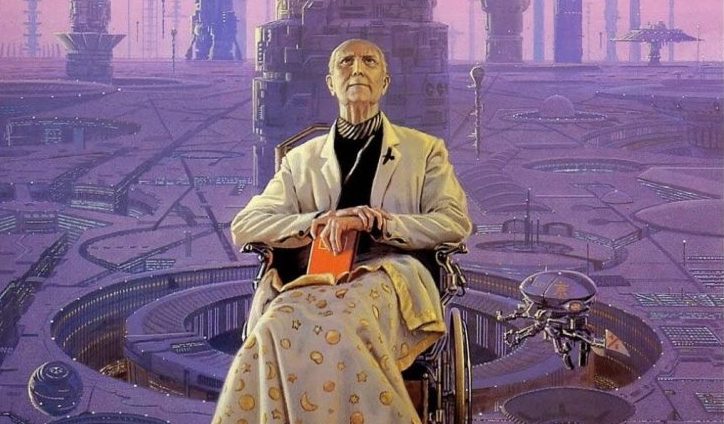This really is a golden age of TV drama. As if Amazon’s Lord of the Rings prequel (reported budget: $1 billion) wasn’t’t enough, we’re also getting an Apple TV adaptation of Isaac Asimov’s Foundation novels.
We’ll have to wait until next year to see it, but a trailer was released this week.
The story is set in the far future. A vast and ancient empire spans the galaxy. It looks set to last forever, but is in fact slowly falling apart. Asimov’s hero, Hari Seldon, realises that collapse is inevitable — but that the ensuing dark age can be greatly shortened if humanity’s knowledge is preserved to hasten the process of recovery.
From A Canticle for Leibowitz to Star Wars, the fall and rebirth of civilisations is a familiar theme in science fiction. What makes the Foundation story special is the means by which the protagonist knows what is going to happen. Seldon is both a scientist and a historian because in Asimov’s tale history is a science. It goes by the name of ‘psychohistory’ because it aggregates observations of individual human behaviour to produce predictions as to how the future of large groups of people — including an entire galactic empire — will unfold. So developed is this science that history can be written out and modelled in the form of mathematical equations.
This doesn’t imply that there’s no such thing as freewill — just that millions of unpredictable decisions at the level of the individual average out to produce trends at a macro level that can be predicted. This is pretty much what the real world discipline of economics assumes — though, of course, it doesn’t attempt to model the whole of history or make predictions very far into the future.
In the 20th century, the Marxist and Fascist ideologues who thought that they could see the shape of things to come, came unstuck. Even the ‘Whig view of history’ — which is only fuzzily predictive — has been discredited. And yet the dream of a science of history retains its allure.
Just look at the current interest in ‘Superforecasting’, as championed by Dominic Cummings. It isn’t meant to be some grand vision of the future, it’s more a method for shifting through available evidence and making objective predictions. In the right circumstances, it produces results because history isn’t completely chaotic. There are chains of cause and effect that generate dynamics that can be identified and extrapolated from.
However, this momentum of events is the very reason why the changes that matter most are impossible to forecast. Trends, no matter how well established, can collide with one another and bounce off in new directions. That’s happening right now as a result of the pandemic. A disease that was spread by the force of globalisation is altering the trajectory of other aspects of globalisation. For instance, corporations that once herded their workers together in open plan offices in expensive cities are now discovering that the knowledge economy doesn’t in fact collapse if people work from home. Patterns of economic geography that we’d taken for granted are suddenly in doubt.
Asimov’s dangerous idea is a beguiling one, but we need to accept that history is neither random nor predictable.











Join the discussion
Join like minded readers that support our journalism by becoming a paid subscriber
To join the discussion in the comments, become a paid subscriber.
Join like minded readers that support our journalism, read unlimited articles and enjoy other subscriber-only benefits.
Subscribe